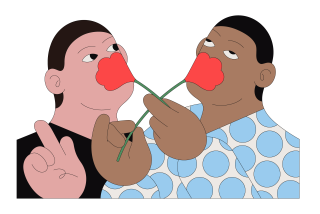2 Million Americans Suffer Taste or Smell Dysfunction
- Share via
CHICAGO — Lose your sight or your hearing, and the whole world appreciates your personal tragedy. But tell people you can no longer taste or smell anything, and they pass you the salt and pepper.
“Most people who don’t have the problem really trivialize it, and that’s true of a lot of physicians as well,” says Dr. Allen Seiden of the University of Cincinnati Taste and Smell Center. “They either think you’re imagining it or they just don’t understand why it would be a problem.”
As many as 2 million Americans have taste or smell disorders, one study estimates, but only about a tenth of them see a doctor each year because of it. There are only four centers in the United States specializing in the dysfunction.
Unaware of Problem
But the problem, Seiden says, is not that there are not enough people seeing their doctors or that there are not enough centers treating them. The problem is they don’t know what the problem is.
“Unfortunately, a lot of time there is nothing much we can do for the people who come to us,” Seiden says. “We’re just beginning to understand what causes this to happen in the first place.”
At a meeting of head and neck surgeons recently, Seiden discussed the results of a study of 54 patients who came to the Cincinnati center.
“The most common characteristic was really that they had all seen a number of specialists before being referred to us,” Seiden said. “And the other thing that really impressed me was how it has really affected the quality of life for these people. Imagine not being able to ever smell flowers or taste food.”
About 80% of the patients had experienced some loss of smell, and about 30% some loss of taste. Many of those who had a loss of smell erroneously also believed their taste had been affected, “a tribute, perhaps, to how important smell is to the appreciation of food.”
The major causes of taste and smell loss are head injury and viral infection, although it is unclear why. In the former case, it appears an impact causes the brain to bounce around inside the skull, “shearing” it from the sensory nerves from the nose or tongue. No specific viral agent has been associated with the loss of taste or smell.
More to Read
Sign up for Essential California
The most important California stories and recommendations in your inbox every morning.
You may occasionally receive promotional content from the Los Angeles Times.













